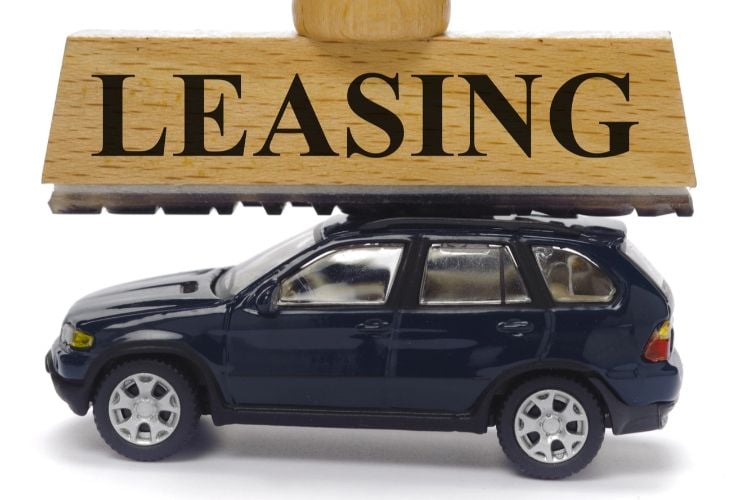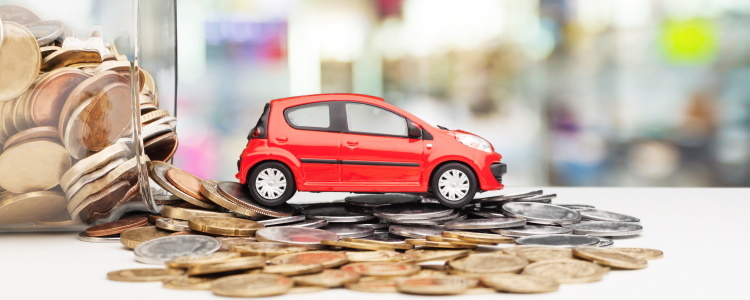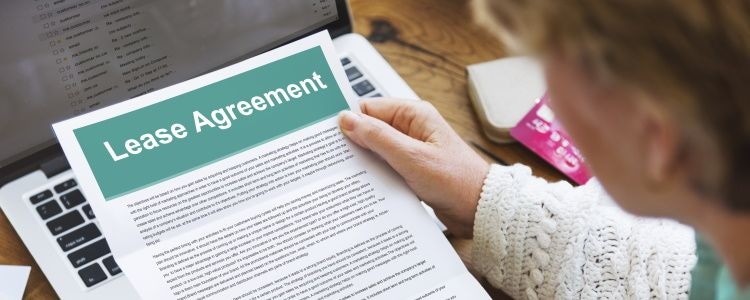Auto leasing has become increasingly popular because it offers people the ability to drive brand-new models, usually for a lower monthly payment compared to financing with a car loan. But if you have poor credit, can you even qualify for a lease? Although bad credit auto leases are sometimes available, qualifying to lease is more difficult if you have less than perfect credit.
Leasing companies usually have high credit score requirements that need to be met to qualify for a car lease. While leasing a car with bad credit isn’t like an auto loan, your credit score is still a big factor in determining your eligibility for a car lease. You can expect a leasing company to request your reports and check your credit score, and you can be denied a car lease if your credit score is too low.
Leasing A Car With Bad Credit
Sixteen years ago during the Great Recession (and even before that), leasing a car was generally not an option for consumers with bad credit. But with the upturn in the economy after 2008, a number of captive lenders, including Kia Motors Finance, made it possible for some buyers with credit issues to lease vehicles. However, it's still typically reserved for those with good credit.
Even though leasing a car may seem like a better deal than an auto loan on the surface, this isn't always the case. It's true that leased vehicles typically carry a lower monthly payment than their car loan counterparts. So, if you always want to drive a new vehicle or want to have the latest bells and whistles in your car, leasing could be appealing.
However, because lease cars are new vehicles, the starting price is often higher than it would be on other cars, such as used or certified pre-owned vehicles. If you're leasing a car for 36 months which is more expensive than one you could buy with a loan in 60 months, you're probably not saving too much cash by having a lower monthly payment.
Additionally, since a lease approval is typically based on your credit score, a credit-challenged consumer may not be able to find a lessor willing to work with them since available credit, and overall financial stability, are big factors in leasing.
Then, when your lease is up, you either have to start the process over and lease again or purchase the vehicle for its precalculated residual value. Also, there are the extra costs associated with leasing that may tip the scales out of favor with bad credit borrowers.

Here are a few things you have to keep in mind if you have problem credit and you're thinking of leasing:
- Not all lenders offer leasing programs to buyers with tarnished credit.
- Those great $199-a-month "Sign and Drive" leases are only available to consumers with the best credit scores.
- At the same time, if you have fair credit and qualify for a lease, it will likely be at a lower program tier (the lower the tier, the more expensive the lease) with a higher interest rate (in leasing it's called the "money factor") and may require a security deposit (possibly more than one) in addition to the typical fees and the first month's payment upfront.
If you qualify, you should also be aware of the limitations that are a part of leasing:
- Leases come with mileage limitations. Do you drive a lot of miles? You'll want to add those miles into the lease upfront. Otherwise, you could find yourself with a hefty bill when you turn the car in.
- Do you take care of a car? Answering "no" means leasing isn't for you. Turning in a car at lease end that has more than normal "wear and tear" means you'll be charged the cost to repair any excess damage.
If those concerns don't bother you, you'll find that leasing a vehicle is a great way to stay within your budget and build your credit while driving a new car.
Our experience
Consumers with bad credit often either don't know the different types of credit scores, what these numbers mean, or even what they are before applying for an auto loan.
At Auto Credit Express we know this is true because we've spent over two decades helping buyers with poor credit searching for online auto loans find those dealers that can offer them their best chances for a loan approval. Our website even contains a resources section that helps answer one of the most frequent questions we get asked: "What credit score do you need to lease a car?"
Qualifying for a Lease with Bad Credit
Leases are typically reserved for consumers with good credit, so the likelihood of getting approved to lease a car with bad credit is relatively slim. Some leasing companies have been known to offer lease deals for people with less than perfect credit, but if they do, they’re going to ask for additional documents, including:
- Proof of income – A recent computer-generated pay stub showing your year-to-date income that proves you make the amount stated on the application.
- Proof of residency – A recent utility bill in your name showing the address listed on the application.
- Proof of phone – A recent phone bill in your name for either a landline or contract cell phone.
- A list of personal references – A list of five to eight personal references complete with names, addresses, and phone numbers.

Are Bad Credit Car Leases Common?
Unfortunately, bad credit consumers can run into issues qualifying for a lease, due to the higher credit score requirements. Most leases are issued to borrowers with good credit scores.
Leasing companies are typically only allowed to lease out brand-new vehicles, so they may not offer a lot of wiggle room for those with credit issues.
Leasing companies tend to have high credit score requirements for their vehicles. Those with credit scores in the bad credit range may not qualify for a car lease, and they tend to have better luck in getting approved for a bad credit auto loan instead.
Generally, most lenders consider borrowers with a credit score below around 670 as having bad credit. Borrowers with credit scores below 700 are considered “subprime” by the credit bureau Experian.
In the third quarter of 2023, subprime borrowers accounted for only 24.15% of leased vehicles, according to Experian. Borrowers with credit scores below 600 only accounted for 4.88% of leased cars.
Bad credit borrowers don’t have the best odds when it comes to getting approved for a vehicle lease, but some do occasionally get the go-ahead. However, with a lower credit score, it usually means paying more for the car.
Classifying Credit Scores for Car Leasing With Poor Credit Scores
Before submitting an auto loan application, consumers should order all three of their credit reports (from Equifax, Experian, and TransUnion) and at least one of their credit scores. One report per week from each bureau is free and they can be ordered at www.annualcreditreport.com.
Credit scores, however, are not always free and may incur charges depending on where you receive your score from. Searching for your scores through myFICO, Equifax, Experian, or TransUnion, the major national credit bureaus, almost always means getting charged for your score. There are also several ways to get your credit score for free, including on some of your credit cards, through your bank, or through services like Discover Scorecard.
Now that we understand the basics of how to get your credit reports and scores, it's time to see where they fall within typical lender classifications to see what kind of auto loan or lease an applicant might qualify for.
As an example, here is Experian's classification system for both types of credit scores – FICO and VantageScore, which both use a general 300-850 range:
- Exceptional: 800-850. This is considered Super Prime, or the best scores you can get.
- Very Good: 740-799. This is considered Prime, and you still have decent chance at financing.
- Good: 670-739. this is considered Non-Prime, and you may start to see trouble financing in the lower end of this range.
- Poor: 580-669. This is the Subprime range, and you may have trouble qualifying for a lease.
- Very Bad: 300-579. This range is considered Deep Subprime, and borrowers may need help such as a cosigner or co-borrower to be approved for financing.
Most applicants who qualify for a new car lease will fall into either the super prime or prime categories. Applicants in either the subprime or deep subprime category will probably have to apply for a high-risk car loan.
Extra Fees for Bad Credit Lessees
Getting approved for a lease means meeting income requirements. Nearly every leased vehicle is brand new, so the payments can be pretty costly.
For subprime borrowers, the average lease payment was $638 a month in the third quarter of 2023, as reported by Experian. For borrowers with the best credit scores, the average lease payment was $579. That’s not that much of a difference, but these are just averages – your monthly payment could be higher or lower. The cost of a lease greatly depends on your credit score and the price of the car you’re looking to lease.
There’s also more to the cost of a lease than just the price of the vehicle. Instead of using an interest rate, leasing companies use something called a money factor, which is essentially the leasing version of an interest rate.
The better your credit score, the better the money factor tier you’re usually placed in, and the less you’re charged to drive the car during the lease term. This means your credit score directly impacts how much you pay overall.
Additionally, bad credit borrowers who are approved for an auto lease may find themselves having to shell out one or more security deposits as a requirement. Security deposits tend to be the cost of one lease payment rounded up to the nearest $50. If your lease payment is $700, then your security deposit is likely to be $750.
The amount can vary between leasing companies, but it’s a good place to start so you can begin preparing. If your credit score is very low, you may be required to put even more money down.
Vehicle Options With Bad Credit
There are resources for borrowers in need of a vehicle – subprime car loans through special finance dealerships.
Subprime lenders specialize in assisting borrowers with credit challenges whether it be bankruptcy, no credit, or just a lower credit score. Subprime financing allows borrowers to buy a new or used car, depending on their income and stability. If you can meet the requirements of a subprime lender, then you could also have a shot at credit repair, too!
Subprime lenders report loans to the national credit bureaus. A reported loan means the timely payments are reported, which allows you to improve your credit score. Payment history is the most important part of your credit score, so making sure the things you pay on are reported is key to repairing your credit.
With an improved credit score by taking on new credit that you can comfortably handle, you could be meeting a leasing company's requirements next time you need a vehicle.
As we see it
By ordering all three credit reports and at least one credit score before beginning the car shopping process, applicants will typically know beforehand which type of auto loan or lease they can apply for.
Subprime car lenders are signed up with some special finance dealerships, and these lenders work with bad credit borrowers who've gone through bankruptcy, past vehicle repossession, or those who are new borrowers with no credit history.
With subprime lenders, there’s a credit check, and they don’t typically offer traditional leasing, only loans. However, if you qualify, you may be able to finance a new or used car, depending on your income and your overall financial situation.
While you can’t get into a lease with a subprime lender, they do offer loans for borrowers with less-than-perfect credit scores. You need to meet some requirements and provide documents that prove you’re ready to take on an auto loan.
Since subprime car loans are reported to the credit bureaus, you can work to repair your credit with timely payments. At Auto Credit Expres, we match people who have experienced car credit difficulties with car dealers who can offer them their best chances for an auto loan.


















